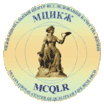|
Novik A.A., Ionova T.I., Kalyadina S.A., Gershanovich M.L., Kishtovich A.V., Rikov I.V.
Symptoms in advanced cancer patients
The purpose of the study was to examine cancer- related symptoms in advanced cancer patients (N=226). Prevalence and severity of 13 core symptoms were measured by patient's self-report across different malignancies.
To examine whether or not analgesics were prescribed to treat pain according to the World Health Organisation's guidelines for cancer pain management Pain Management Index (PMI) was calculated. Discrepancy between patient and physician in symptom reporting as a barrier to effective symptoms control was evaluated. Fatigue was the most prevalent severe symptom: more than half of the sample experienced moderate-to-severe fatigue.
The other severe symptoms-sleep disturbance, pain, distress, and sadness-were present in two thirds of the patients. More than half of patients (53%) reported 1-4 symptoms at moderate-to-severe levels, while 22% had 5 or more moderate-to-severe symptoms. Among patients reporting severe symptoms, 48% reported at least 1 severe symptom, and 37% - from 1 to 3. We compared patients with hematologic malignancies (39% of the total sample, n=88) to those with solid tumors.
Fatigue was the most severe and the most prevalent symptom in both groups, followed by pain and sleep disturbance. However, they were more pronounced in patients with solid tumors. As for the other symptoms they varied in patients with solid tumors and hematologic malignancies: distress, and sadness in the solid-tumor patients as contrasted to shortness of breath and remembering for hematologic malignancies.
Out of 120 patients with pain 65.8% (N=79) were not receiving adequate pain relief. Physicians were found to underestimate the severity of pain, fatigue, distress, and interference with general activity.
|





